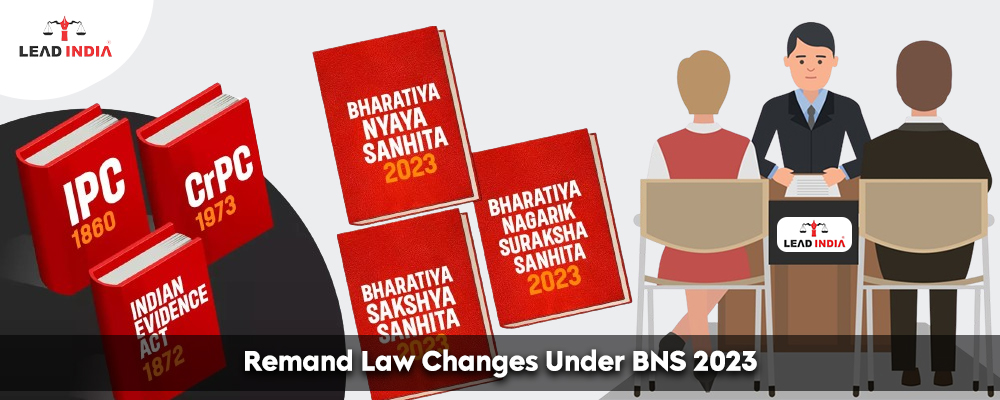The word “remand” means “to return or send back” in a dictionary. Nonetheless, it has two distinct meanings in the legal community. First, it’s employed to return the accused to the custody of the appropriate authorities. Second, it is employed to return cases to the lower court from the appellate court.
Section 187 of the BNSS: Power of Magistrate
As per Section 187 of the BNSS, if the magistrate determines that there are good and reasonable grounds to hold the accused, he may order their detention, but not in police custody. In any case, the magistrate may not order detention for a duration longer than:
- ninety days if the investigation is related to a crime that carries a death sentence, life in prison, or a sentence of ten years or more;
- sixty days if the inquiry is related to any other crime.
- and the accused person will be freed on bond if he is willing to provide bail and does so after the specified ninety days, or sixty days, depending on the situation, and each individual released on bail under this subsection will be considered to have done so.
Need A Legal Advice
The internet is not a lawyer and neither are you. Talk to a real lawyer about your legal issue

Section 187 of the BNSS: Concept of Custody
- Under Section 187 of the BNSS, “custody” often refers to “police custody” or “judicial custody.” Since the accused is in the sole custody of the police officer, officials have more access to him while he is in custody.
- The police department’s main goal is to get to the bottom of each given case by conducting interrogations within the allotted custody period.
- In contrast, the accused is detained in jail while under judicial custody, meaning that neither the police nor the investigating authorities can question the accused in the manner of their choice.
- The court must grant authorization for the officials to meet with the accused in order to conduct an investigation, and they must adhere to all rules and directives set forth by the court.
Remand Law Changes Under BNS 2023
- Terminology and Scope: In an attempt to improve the process, BNSS 2023 might have included new terms in addition to making minor procedural changes or modifications.
- Technological Modifications: To speed up investigations and detentions, BNSS 2023 could contain procedures for digital submissions, electronic surveillance, and other technological advances.
- Updated Rules: BNSS 2023 may include certain rules or updates intended to increase transparency, effectiveness, as well as openness in the custody and investigations process.
The purpose of legislation restricting an accused person’s access to police custody is to protect that person’s right to life and liberty. Remand has no penal intent behind it. The goal of police custody is to provide the authorities with the tools necessary to collect evidence through custodial interrogation. The reason for allowing the accused to remain in judicial custody during the investigation for the remaining 60 or 90 days under statute is to make sure the accused does not tamper with the evidence, threaten witnesses, or escape. This justification also serves as the basis for keeping the accused in judicial custody after the chargesheet is filed and the trial has begun.
The equivalent of Section 167 of the CrPC, 1973 is Section 187 of the BNSS. A maximum of 15 days may pass while an accused individual is being held in police custody, as per Section 187 (2) of the BNSS. This limit may be broken up into smaller chunks, but at no stage during the first 40 or 60 days of the 60- or 90-day pre-chargesheet detention period may it exceed 15 days.
One can talk to a lawyer from Lead India for any kind of legal support. In India, free legal advice online can be obtained at Lead India. Along with receiving free legal advice online, one can also ask questions to the experts online free through Lead India.





 Talk to a Lawyer
Talk to a Lawyer